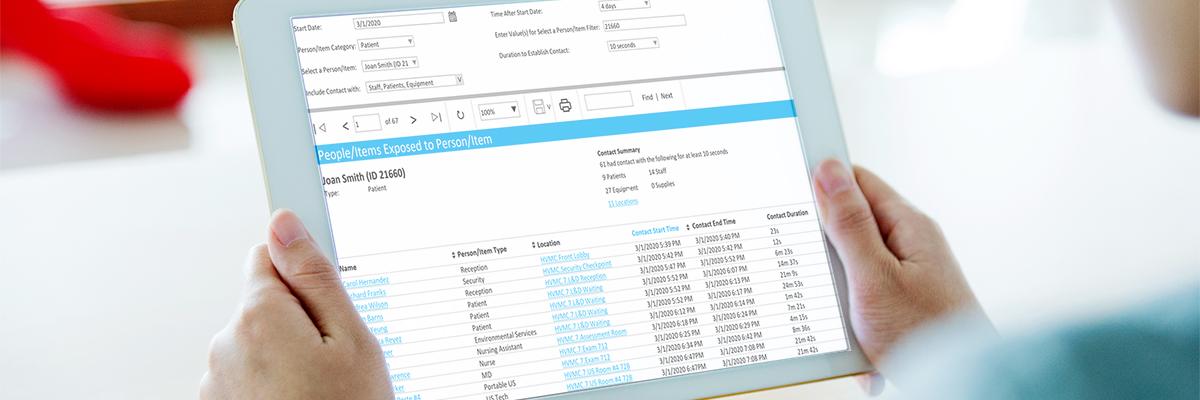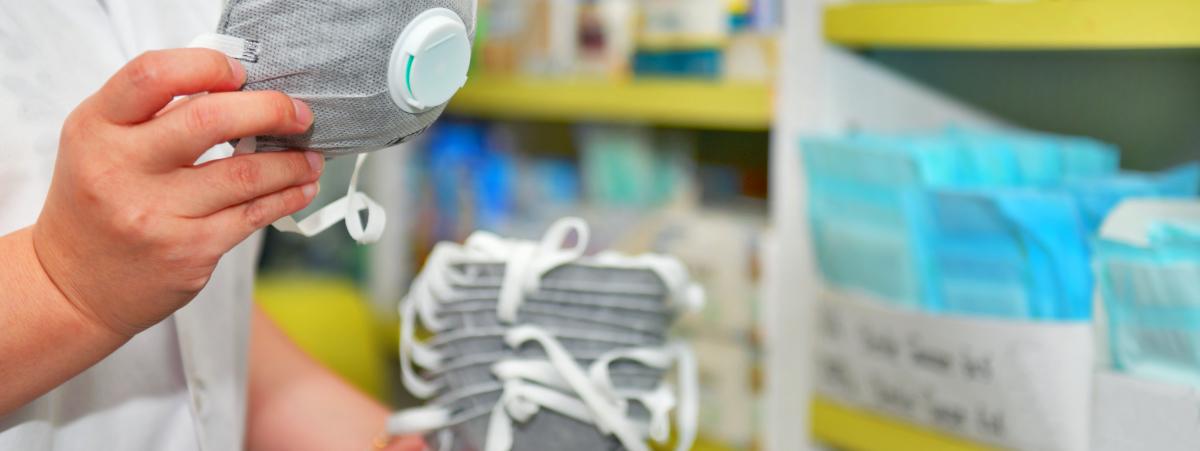Anti-Virus: Infor Software is Helping Hospitals Battle the COVID-19 Pandemic
A team at Infor is fighting back against COVID-19 by helping medical workers track critical PPE
The COVID-19 pandemic has put normal life on pause for many, including Matt Wilson. Quarantined at home in Kansas City, Wilson – senior vice president of healthcare strategy with global cloud software company Infor – felt sidelined, powerless to help in the fight.
Until one March morning, with the novel coronavirus spreading quickly through the U.S., Wilson and a dedicated team at Infor realized their opportunity to fight back and help the healthcare workers battling COVID-19 in hospitals around the country.
“We all expect healthcare workers to be there for us, our families and loved ones,” said Wilson. “So, there was a duty and responsibility for me personally. If I’m assuming and hoping that these people will save my life, what am I doing to help them? And I think for a lot of folks on the team, this is something substantial that we could do to help.”
Drawing upon knowledge from clinicians currently battling COVID-19 and from team members with backgrounds in frontline healthcare, one critical need rose to the top – the need for accurate tracking of supplies, specifically the dwindling supply of personal protective equipment (PPE) healthcare workers rely on to safely treat patients.
“Without this personal protective equipment, clinicians are putting themselves at harm, they are putting their families at risk,” said Wilson.
This new threat called for a new solution – a new software dashboard that would make PPE supply data quickly accessible. Harnessing the tools and expertise of a diverse Infor team they felt it was a challenge they could quickly overcome.
“Part of our DNA is that we have experts, people who have walked a mile in our customers’ shoes, as part of our team, and that’s how we stay close to our customers’ needs and respond,” said Steve Fanning, Infor senior vice president of healthcare business development who led the initiative.
So began a race against time and numbers. The team moved fast and purposefully, engaging directly with healthcare providers to learn exactly what they needed. They knew the importance of this new solution – it could not fail.
Within a week, they designed and developed the dashboard. By week two, they were testing. And just days after that, the Infor team pushed the brand-new dashboard to Infor’s CloudSuite products, providing faster, sharper insights into crucial supply levels for hospitals across the country and streamlining updates to emergency hospital and government preparedness programs. Frontline healthcare professionals needed only to log in and critical PPE supply information was at their fingertips.
“This newly developed software dashboard allows the organization to really pull out those critical items – in this case, PPE – to be able to manage that inventory much more discretely and on a minute-by-minute or hour-by-hour basis,” Wilson said.
With a customer base accounting for roughly 30% of all American healthcare providers, and with 85% of labs testing for COVID-19 counting on Infor software, the Infor team ensured it was prepared to support strained hospitals facing an influx of patients. Infor’s teams stayed connected with clinicians to provide prompt answers to questions about using the new dashboard and data reports. Feedback from those partners is also helping Infor’s developers work on new iterations and services that unite data and healthcare to provide better treatment and ultimately save lives.
Knowing and tracking who has the virus and who those people may have encountered is another critical piece of hospitals’ response to COVID-19. This is called contact tracing, and several large healthcare institutions across the U.S. are already doing it using Infor’s Location-Based Intelligence Platform.
“They're sharing with us that they've been able to get ahead and stay ahead of infection control” with Infor’s technology, said Fanning.
With time at a premium, real-time data sent via patients’ wristbands, clinicians’ badges, and tags on medical equipment enable providers to see interactions and surface contacts within the hospital. If a patient tests positive, providers can take immediate containment steps in the facility – notifying, screening, isolating, and treating – to minimize further exposure. This real-time contact tracing can also help providers reduce waiting time, minimizing potential spread among frontline workers and patients.
“This is really good for public health,” said Fanning. “I’d rather to go to a hospital that has this capability versus one that doesn’t.”
Watch: Infor thanks healthcare professionals
“This effort highlights the fact that people that work at Infor in the healthcare business, consider themselves a part of the caregiving chain,” Wilson said. “The work that we do is important to the ability to deliver high-quality patient outcomes.”
And as far as Wilson, Fanning and the Infor team is concerned, the effort to help is not done yet. They are focused on refining disaster kits for areas with surging COVID-19 diagnoses, including improved contact tracing for interactions between patients, staff, and equipment.
At least one thing is sure amid the uncertainty: The collective experience fighting COVID-19 will help in the future.
“In the midst of a horrible worldwide situation, there are points of light that we will be better for, and in turn will be better oriented to help serve our customers during the next critical scenario,” concluded Wilson. “And that may be even just as important.”




